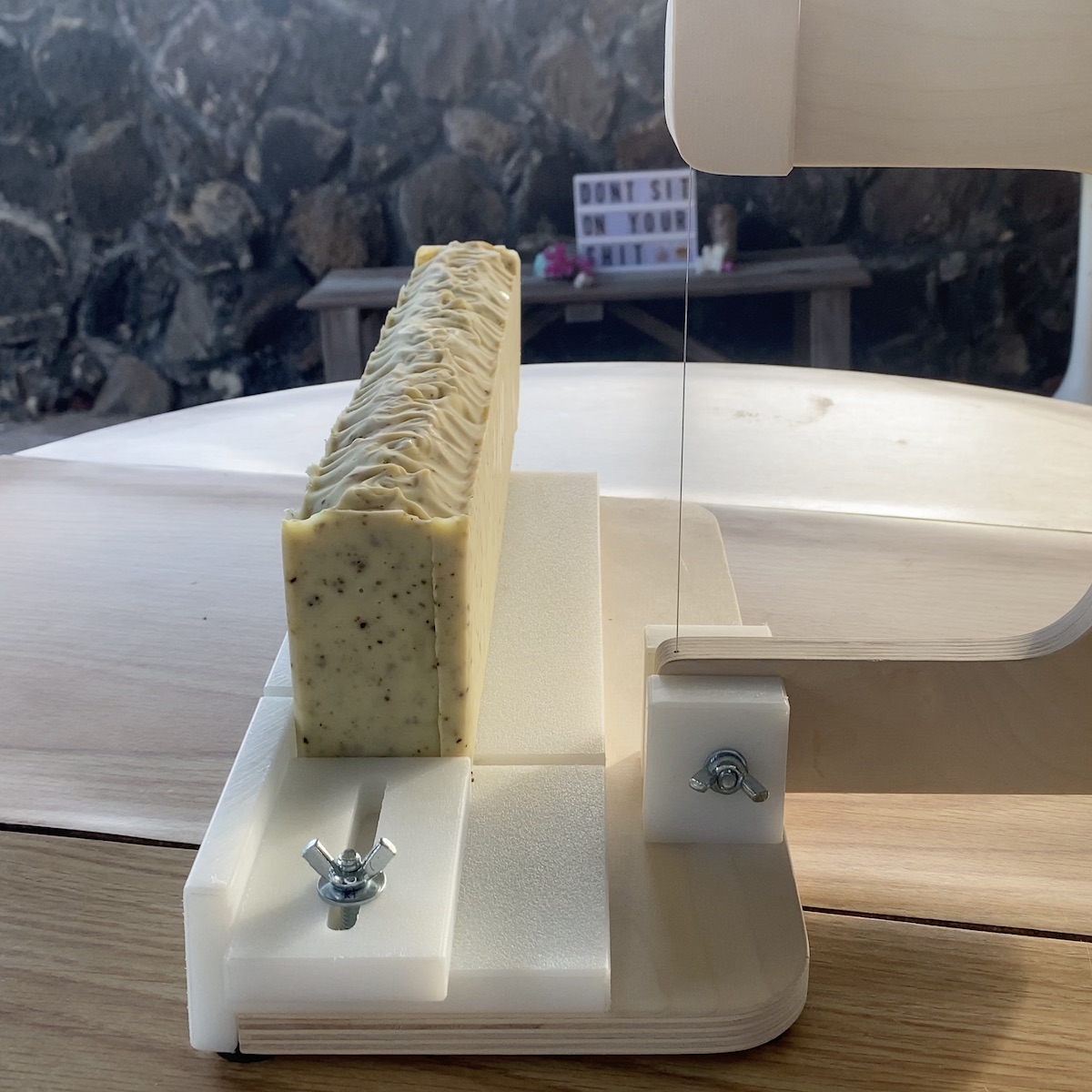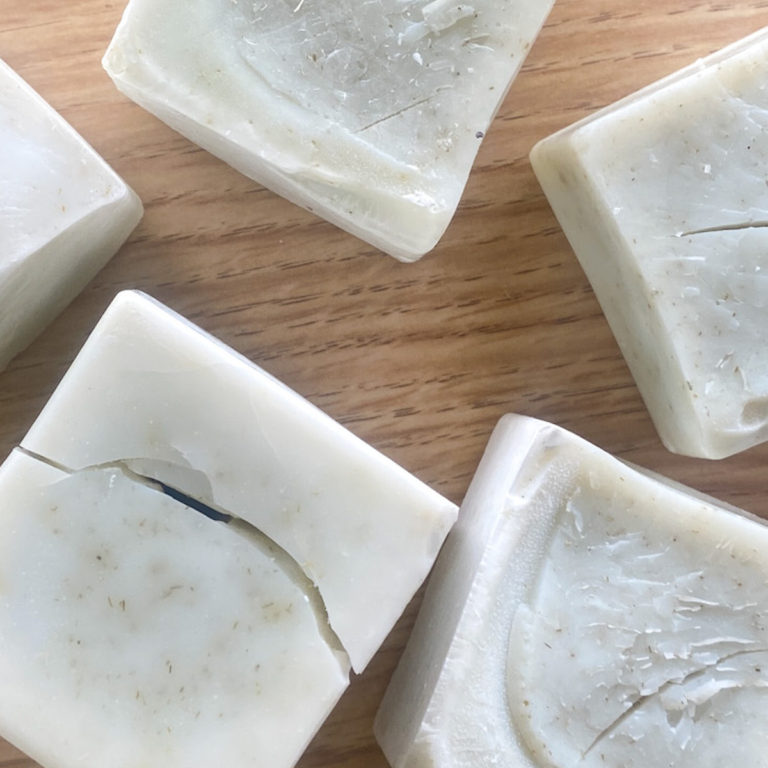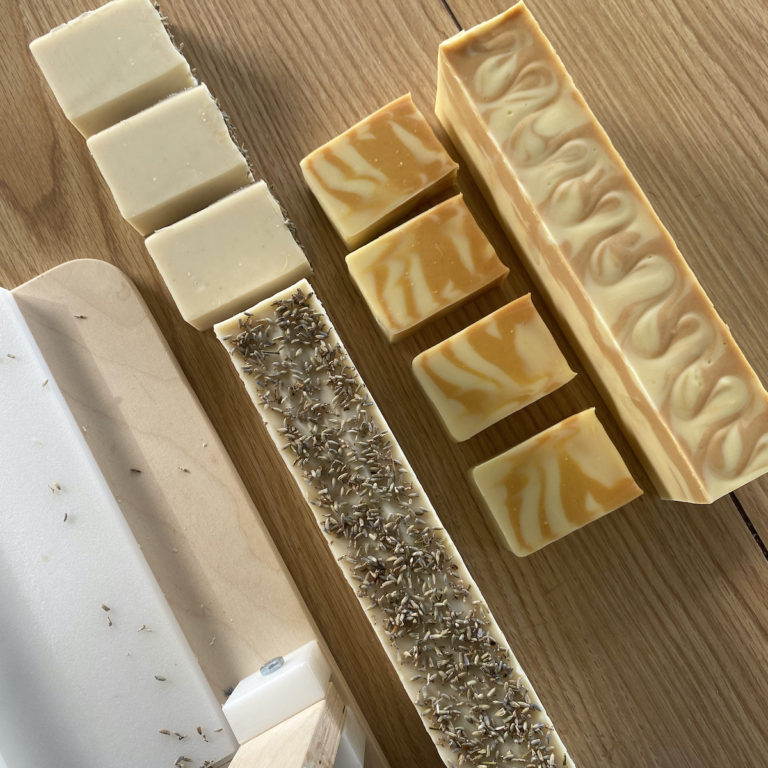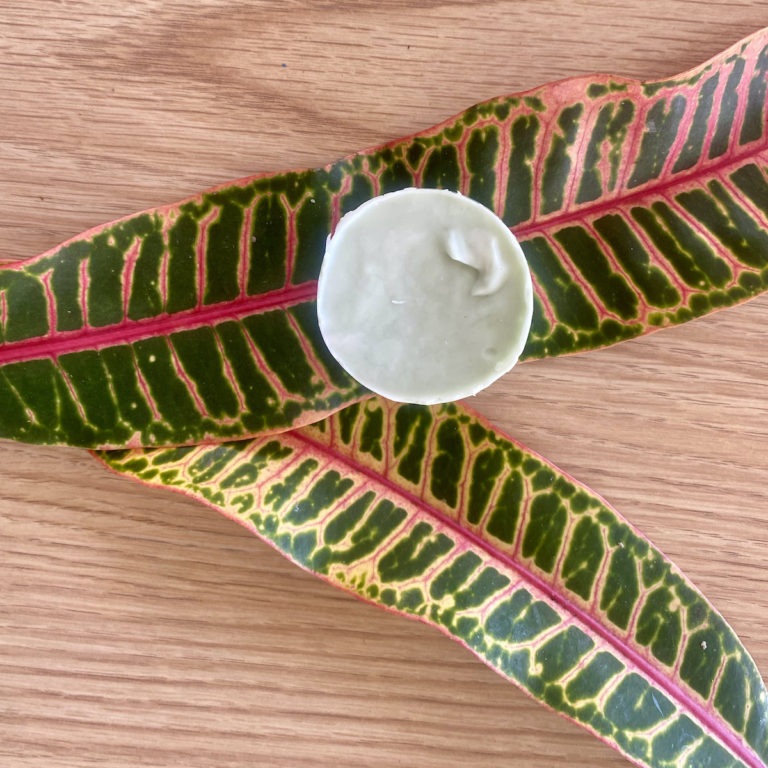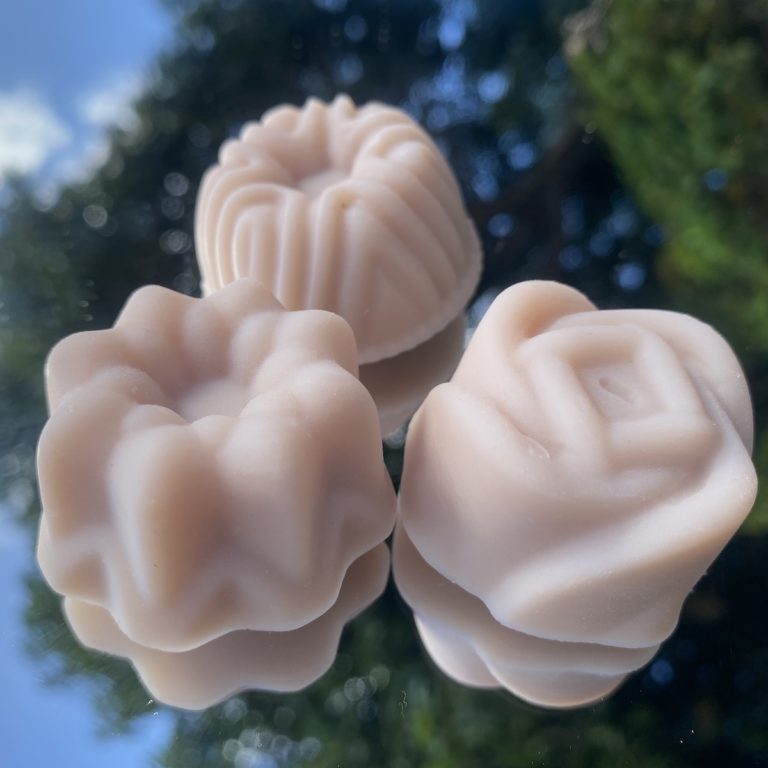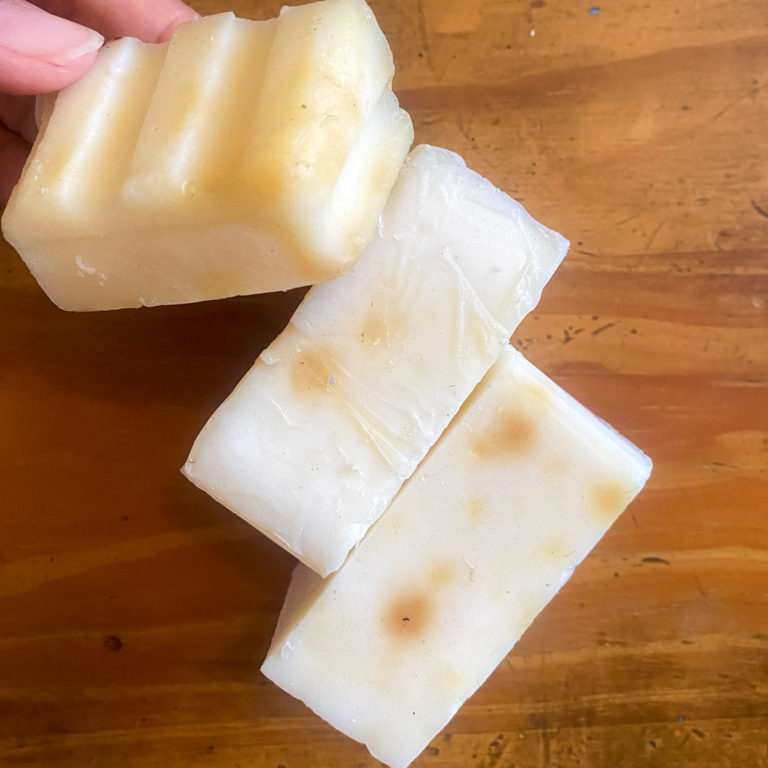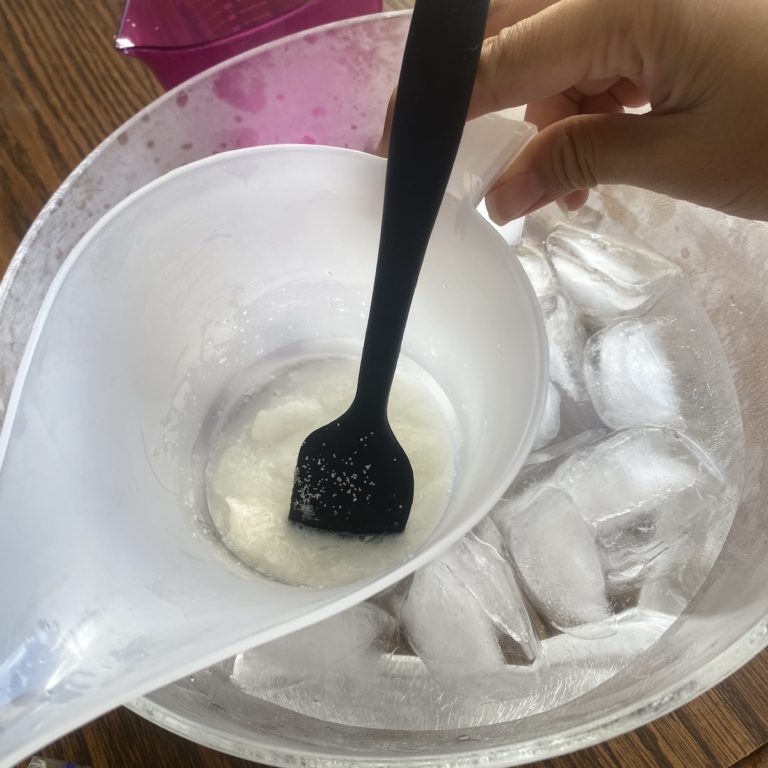9 Great Reasons You Should Make Your Own Soap
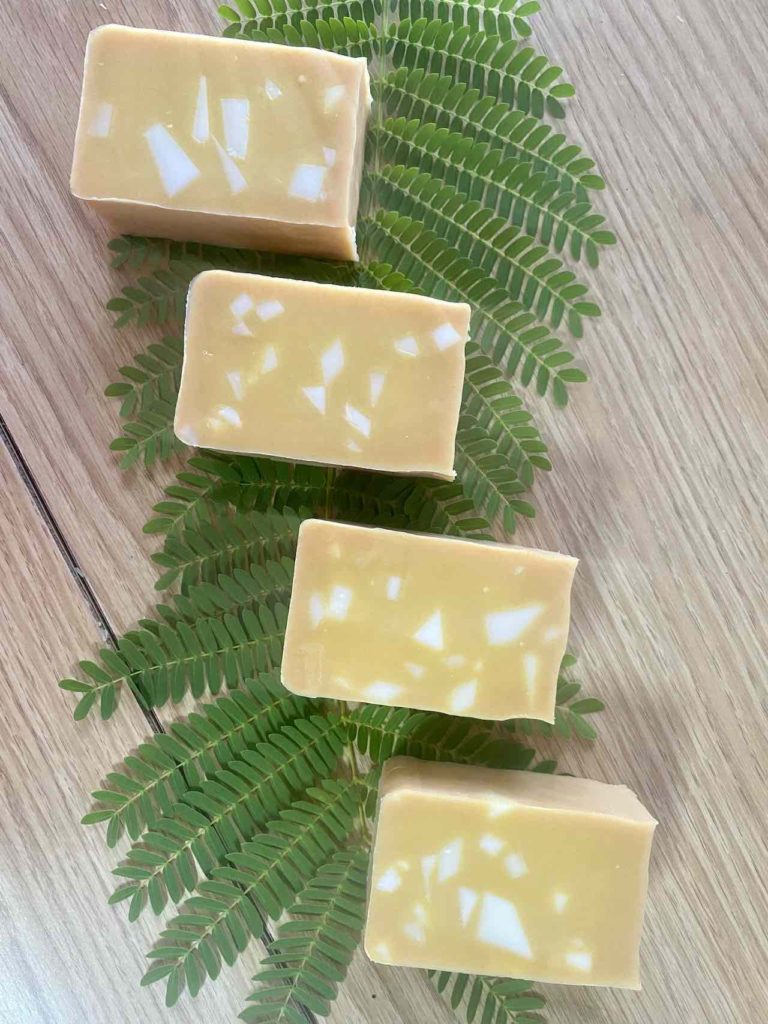
We use soap every day, whether to wash ourselves, our clothes, or our dishes. In the supermarket, it is easy to come by and cheap. But lately, there have been more and more people buying natural soaps or making their own soap. Why should you make your own soap?
You should make your own soap because soap making is a simple, easy to learn process that cuts out the unnecessary chemicals found in store-bought soap (which is oftentimes actually detergent in bar soap form) and saves you money in the long run. It can also be a fun creative outlet, a way to earn money, and take care of your health.
If you are wondering why you should go through the hassle of making your own soap or think you will not have the spare time or energy, you might be right. Do it only if you’re interested. Considering how much soap can be produced in one soaping session, the time it takes is actually pretty minimal and definitely worth it for the final product. There are plenty of reasons why homemade soap is better for you than store-bought soap, which I will be giving you in this article, as well as a brief explanation of how soap works and the methods of soap making.
It’s Real Soap
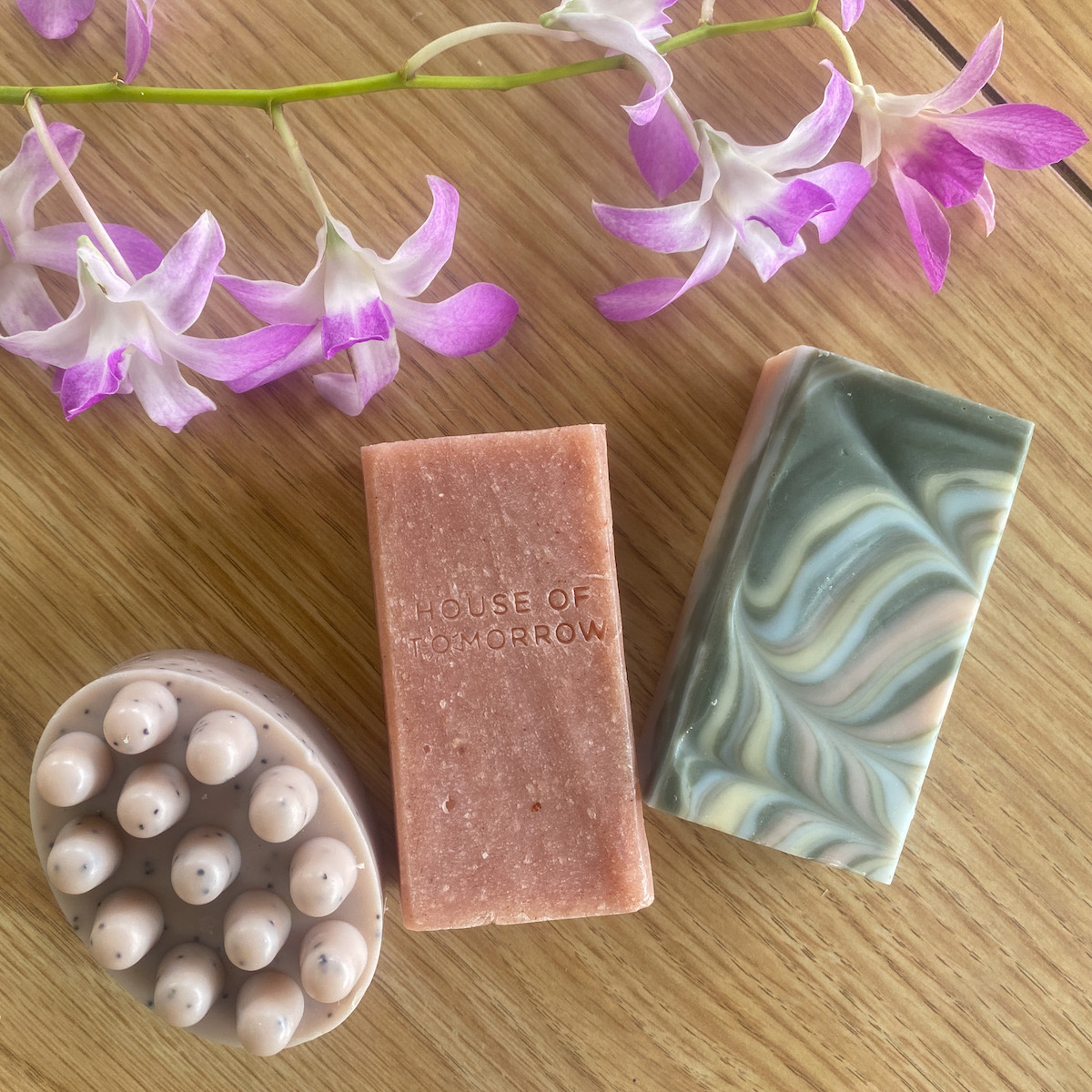
Fun fact: the “soap” you buy in stores is not really soap. According to the FDA, real soap is made of “alkali salts of fatty acids” (essentially, oils or fats combined with lye). To mass-produce soap, companies have found it is easier to use synthetic ingredients instead of oils. Therefore, most mass-produced soap-like products (Dove, Irish Springs, etc.) are not technically soap, but a “synthetic detergent product.”
When you make soap, you can be assured that it is actual soap because you are in charge of the ingredients you put in it! You can avoid synthetic materials, harsh chemicals, and unnatural fragrances.
Ingredients
The ingredients in real soap are simple:
- Fat – animal, vegetable, or mineral oils
- Lye – the alkaline used to hold the soap together
- Water
That is it! Just three ingredients, boiled together and left to set up. You can also add natural fragrances such as essential oils or beauty fillers like herbs or flowers (which you can dry yourself, or buy in pre-dried packages like this 12 Pack of Natural Dried Flowers and Herbs). The bottom line: you are in control of the ingredients in your soap and, therefore, the overall health of your skin.
The ingredients in a “synthetic detergent product” are a little less straightforward. Many companies add antibacterial, hormonal, or preservative ingredients to their detergents or soapy bars in addition to lye and oil substitutes. They vary per brand and type of soap but can include:
- Fragrances – sometimes natural, but mostly chemically produced perfumes
- Parabens – a controversial preservative still in some soap products, associated with health and environmental issues
- Sulfates – the “lather” of soaps, known for long-term buildup in the body and irritating eyes and lungs
- Triclosan – an antibacterial preservative, currently being studied for links to skin cancer and hormonal shifts
- Abrasives – exfoliants, natural or unnatural, for cleaning skin: most dermatologists do not recommend soaps with abrasives.
The FDA has approved these ingredients and allows them to be sold, but the added hormones and risks are still being researched and studied. Also, the long-term effects of these chemicals on the body and the environment are not yet known.
There are more naturally based soaps and cleaners on the market, but these generally come with a higher price tag. The more natural a product is, the more expensive it is likely to be in a store or supermarket. Even with the most organic soaps, you still will not have complete control over the ingredients unless you make it yourself.
Easy To Make
Making soap might seem like it would be a hassle, but it is a simple process. There are two basic methods for making soap: the hot-process and the cold-process method. Both ways do the same thing: combine and heat a fat (usually an oil) and lye and create a new soap after setting.
Important note: whichever method you use, you will undoubtedly need to use lye in your soap. It is a corrosive acid and can cause severe burns. It can also be dangerous to breathe in large amounts. It is essential to use safety equipment and proper ventilation, but the prospect of lye should not shy you away from making soap.
If you have adequate protective gear and are making your soap in a well-ventilated area, you do not need to worry! Lye is a reasonably safe product, as long as you know how to use it properly and protect yourself well. It also is not in the final product – the soap making process completely changes the lye into soap.
There are other methods of making soap at home, but the hot and cold process methods are the most common and the only ones that do not involve melting and repouring premade soap into molds.
The Hot Process Method of Soap Making
The hot process method of making soap is simple. Heat accelerates the reaction between fat and alkali (the lye) and causes the soap to set overnight. It is the quickest form of saponification (fat and lye chemical process of combining to make soap).
You only need to heat the oils, add them to the lye solution, and combine carefully. Once they are heated and stirred, the combined product can be poured into molds and will take a day or two to set. After that, you can use your soap!
Loaf molds are the simplest mold for soap-making; you only need to pour in the melted soap. Once the soap sets, it is simple to flip it out of the molds and cut it into soap bars. My recommendation for loaf molds is this set of ZYTJ Silicone Soap Molds, which have a wooden mold to keep the soap in place and a silicone mold for easy removal.
There are several quick tutorials on how to make soap with the hot-process method, including this one:
The Cold Process Method of Soap Making
The hot method of making soap has been used for centuries and is the historical way to make soap. However, since we can now more accurately measure lye and oil, the “cold” method (so-called because it does not involve boiling water and lye) is just as effective and easy to learn.
The cold process method uses the heat created by the oil and lye reaction to make soap instead of adding heat. This method reduces the need for heating the lye and takes between four to six weeks to set up (instead of the hot method’s twenty-four-hour window).
Most beginning soap makers generally start with the cold-process method of soap, which merely involves mixing the lye and oil, pouring it into molds, and waiting for it to set! While it is still a carefully controlled process, it is easier than heating the lye and oils.
If you are looking to begin soap making with the cold-processed method, I recommend “The Natural Soap Making Book for Beginners.” It includes instructions, recipes, and tips on how to make beautiful and natural homemade soaps.
Also, here is a video tutorial on the cold method soap making process:
Better for Your Health
More than just being natural and easy to pronounce, the ingredients in homemade soap are also better for your health. I have talked a little bit about the artificial or chemical ingredients used in the soap-like detergents found on the marketplace.
Most of these have not had adequate, long-term testing done to see how they affect your health. However, some of the beginning studies (or animal-based studies) have shown a change in hormone levels, increased allergic reactions, and potential links to cancer, according to the FDA.
Whether or not the ingredients of mass-produced soaps have such negative impacts on long term health is still under study, but there is no question that more natural, less chemical-heavy soaps are better for your skin and overall health.
Soap Effects on Skin
According to a study done by the Indian Journal of Dermatology, most bath soaps have a pH level (the relative acidity or base) much higher than the natural pH level of human skin. The study results revealed that most mass-produced soaps are outside the natural range for humans and could be causing mild skin irritation or other skin conditions over time.
In addition, abrasives in soaps (usually added for exfoliation) are not always the best for your skin, especially if it is sensitive or extra dry. Even all-natural soap brands sometimes advertise abrasives, but it is essential to know what your skin needs and how each addition could affect you.
These ingredients are in store-bought soap, but not in natural soap. However, there are also health and skin benefits to a natural soap that the mass-produced soaps do not have.
One ingredient that store-bought soap products do not have is glycerin, a natural skin moisturizer, and softener. Natural soaps create glycerin as a byproduct, but most mainstream soap companies separate it from their soaps to sell it separately as a lotion.
Many people who make or use natural soap find that it softens their skin, and they do not need to spend money on lotions. So if you make your own soap, you also might not ever need to buy lotion again!
Good for the Environment
The more chemicals and parabens are manufactured into soaps, the more they are released into the environment. Specifically, parabens can build up in the natural environment in harmful ways and recycle through our water systems. Sulfates have also been shown to add hormones to the ecosystem.
Homemade, natural soaps do not have the parabens, fragrances, and added chemicals in mass-manufactured soap substitutes. Fats, alkali, and water are all naturally occurring, and therefore break down quite quickly and biodegrade back into the ecosystem. This does not include the amount of plastic and cardboard you will save, just by not buying pre-packaged soaps.
Can Be Artistic
Making soap is not only useful, but it can also be beautiful. Soap makers do not just make their own soap for monetary or health reasons; many make it because it provides an opportunity for artistic expression.
Artisan soaps are individually molded or made into loaves, cut, and sold as single bars. You can buy molds of all different sizes and shapes for individual bars – I love these designed Rectangle Silicone Soap Molds for patterned molds.
When making the soap, you can mix in dried flowers, herbs, or other filler ingredients. You can also add various natural dyes, such as this multipack of Epoxy Resin Dyes (made from mica, a naturally occurring mineral). These options are natural and make for a beautiful final product.
Can Save You Money
There are not many purchases involved with making soap; all you need are ingredients and soap making instruments (mostly just everyday kitchen supplies, such as a pot or bowl). No matter which method you choose, you will need lye and oils and whatever other ingredients you may want to add.
Both lye and oils are relatively cheap, especially if you buy them in bulk (a few pounds at a time). This increases the amount of soap you can make. If you are just experimenting with soap making and do not want to start with considerable investment, I recommend this FDC 99% Pure Lye along with this jar of Coconut Oil (marketed explicitly for making soap). They are both affordable and come in smaller amounts.
Once you have the essential equipment and ingredients, you will be able to make soap for a while before running out. Although the first few purchases of soap making ingredients can be a bit larger, your savings will add up in the long run.
A natural bar of soap lasts longer than a store-bought soap. Even though the individual bars might be cheaper, making an entire loaf of soap will provide you with more soap than a six-pack of packaged beauty bars. Add these savings up over a more extended period, and the money saved by homemade soap will be greater than the money spent on ingredients.
Can Be Lucrative
In addition to saving money by making your own soap at home, you can join the growing group of people making money off their soap hobby! Whether you are making a wide variety of scented soaps or just simple bars, you might be able to turn a profit with your soap.
Natural soaps are swinging back into fashion as more and more people learn about the harmful effects of detergent “soaps” on their bodies and the environment. However, some people do not have the spare time or energy to put into making soaps. This trend has opened a niche in the soap market for homemade soaps.
Buying ingredients in bulk is the easiest way to save money while making soap. It also has the positive side effect of creating a lot of soap, whether all at once or in small batches. You can decide to sell your homemade soaps or give them away to friends and family as unique, beautiful, and useful gifts.
Can Give You a New Hobby
With relatively inexpensive ingredients (that are easy to order online), soap making is an easy, useful hobby to learn. If you are currently stuck in quarantine, not able to leave your house, or just have a lot of spare time, making your own soap can lift your spirits and provide you with the excellent byproduct of the soap itself.
There are many benefits to trying new things and creating new hobbies, both mentally and physically. Not only do you get a lifetime supply of fresh, clean, healthy soap, but making the soap can improve your mental state and bring you joy!
Fun To Make
After all of these practical, environmental, and healthy reasons to make soap, this reason might sound a little tame, but it is true. Many soap makers start for practical reasons and keep making soap because they love the process.
Whether it is the satisfaction of creating something, the knowledge that your soap is better for your health, or the pleasure of giving soap as gifts to others, there are many ways to find genuine enjoyment in the process of making homemade soap. Having fun is a great reason to continue doing this hobby.
Final Thoughts
There are many soap making blogs, websites, and books if you are interested in learning more about the process. There is even an online soap-making forum for beginners to introduce themselves and ask questions about the process. The website provides a way for new and experienced soapmakers to get to know each other and exchange ideas.
The benefits of making your own soap far outweigh the cons – this hobby provides health, monetary, and environmental benefits and is enjoyable and productive. You can stay clean in a healthier, lovelier way. Now you can get out there and make some soap for yourself!

